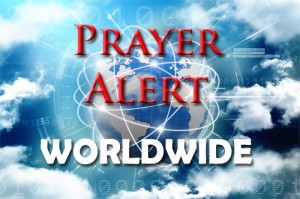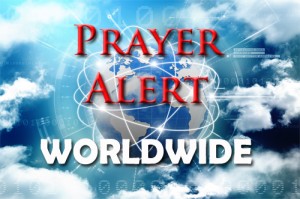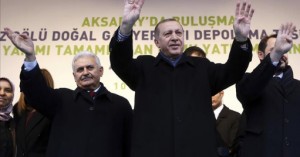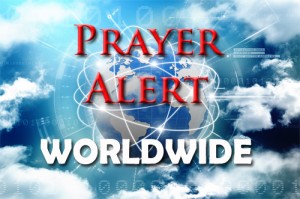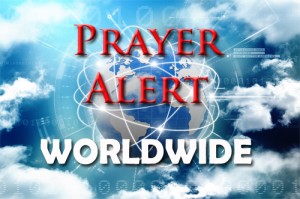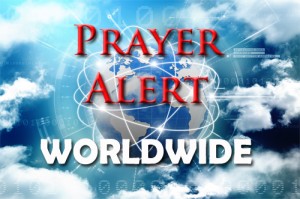Displaying items by tag: Turkey
Turkey: referendum vote divides country
Half of Turkey is celebrating a win in a national referendum, the rest demand a recount. President Tayyip Erdogan has claimed victory and sweeping new powers as head of government, head of state and head of the ruling party. He will have power to appoint cabinet ministers, propose budgets, appoint judicial bodies and issue decrees without safe counterweight mechanisms that exist in democratic countries such as the USA. The opposition Republican People's Party (CHP) cited voting irregularities, including using unstamped ballot papers. The Organisation for Security and Co-operation in Europe said the referendum had an ‘unlevel playing field’, as the ‘Yes’ campaign had unlimited media advertising, while the ‘No’ campaign was allowed virtually none. There was misuse of state resources by the ‘Yes’ campaign organisers, and obstruction of ‘No’ campaign events. Big cities did not back Erdogan or his changes. The win has caused both celebrations and protests across the country. See also:
Turkey: constitutional referendum
In a referendum on 16 April, Turks will vote yes or no to constitutional amendments to shift Turkey from a system where executive powers lie with the prime minister and are checked by parliament to one giving unprecedented powers to the president. Many fear this will lead to one-person rule, with power to suspend parliament and appoint all ministers and high-ranking officials. Turkish Christians are concerned about rising nationalism, and also the random arrests since last summer’s coup attempt. American pastor Andrew Brunson, who has been in detention since October, still has no clear outline of the charges against him, although the prime minister has promised to speed up his court case. He and his family have been in Turkey for over twenty years, leading a church in Izmir. See:
Pray about Turkey and its Upcoming Elections
Erdoğan’s Proposal for an Empowered Presidency
Turks will vote April 16 in a referendum on proposed constitutional amendments that would greatly enhance the power of the presidency and reinforce Turkey’s democratic decline.
“On April 16, the Turkish people will vote on a package of constitutional amendments passed by Turkey’s Parliament on January 21, 2017, that greatly expands the powers of the presidency.
If the package passes the nationwide referendum, it will broaden and deepen the de jure powers of the presidency, giving it authority over all executive branch institutions, including the military. It would give the president the power to appoint key senior-level judges and other judicial officials without parliamentary—or any other—review. It would abolish the post of prime minister, with the president assuming the powers of that office. And it would allow, under certain circumstances, the president to serve three terms totaling just short of 15 years.
In short, Turkey’s long-standing parliamentary political system would be transformed into something more appropriately called a presidential system, in which an “executive presidency”1 amasses unprecedented power in the hands of one man. The referendum will take place amid the ongoing erosion of Turkish democratic institutions, freedom of speech, and political rights. Moreover, the referendum campaign and the vote itself will be held under some of the least democratic circumstances imaginable—namely, emergency rule.
The following are among the other significant features of the proposed new presidential system that will be explored in the main body of this report:
On paper, the new structure would create a presidency with vast powers, but—depending particularly on whether the president’s party controls Parliament—it would be somewhat less powerful than the unfettered, one-man dictatorship widely expected by Erdoğan’s critics and possibly craved by Erdoğan himself.
Voters will go to the polls knowing that a “yes” vote will significantly increase the president’s already considerable power, fortify Turkey’s growing reputation for authoritarianism, and further alienate Turkey from its NATO allies.”
Alan Makovsky is a Senior Fellow on the National Security and International Policy team at the Center for American Progress.
Please keep the beautiful land of Turkey and her people in prayer as they go to the voting booth on April 16 that a just and good government will be the result that upholds religious freedom. Pray that the nation will be kept from religious and political tyranny and that many Turks will be able to have the freedom to come to faith in Jesus Christ. May the Gospel speed on, spreading everywhere as never before in this largely unreached nation!
Middle East: seismic shifts and fresh persecution
The fighting in Syria grows more complex as Turkey aims to interrupt the line of territory held by Kurdish forces along its border and the US works with the Kurds to prevent battle escalation and focus on IS. Pray for this tense situation where Turkish and US goals are in disagreement. Pray also for the third round of peace talks sponsored by Russia and Turkey that began on 14 March. In Iraq, the campaign to retake Mosul from IS progresses despite fierce resistance. Iraqi commanders are hopeful they can overcome IS within six months. Many civilians have been prevented from fleeing by IS, and horrific sites of mass burials have been uncovered in captured areas. Pray for the future for Mosul, for peace-building and reconstruction to be given as much thought as the current military campaign. The two-year conflict in Yemen has killed 7,700 people, including 1,500 children. The fallout is that over 18 million people need food aid.
Turkey: American pastor held in prison for his faith
Efforts to free an American pastor held in a Turkish prison for his Christian faith have failed. Andrew Brunson was arrested on 8 December and charged with ‘membership in an armed terrorist organisation’. On 29 December a Turkish court denied his appeal for release. Brunson has preached the gospel in Turkey for twenty years and hoped for permanent resident status. But according to the American Centre for Law Justice (ACLJ), Brunson was arrested for unspecified reasons. In a statement, the ACLJ says ‘the charging documents do not present any evidence against him’ nor did the court specify which ‘terror’ organisation Brunson had supposedly joined. Experts say Brunson's case is part of a growing climate of intolerance against Christians and other minority faiths in Turkey.
Middle East: the year ahead
2017 is set to be fraught with challenges for the people of the Middle East, Christian and Muslim alike. A brief summary: 1) Iraq will remain precarious, even though the battle to retake Mosul is making progress: Shiite-dominated rulers in Baghdad face conflict with an unwilling Sunni minority. 2) Turkey’s stability is threatened by challenges from IS and from Kurdish militants, who have killed some 1,000 Turkish soldiers in the last two years. 3) There are hopeful signs in Iran, though changes could be slowed by the death of former President Rafsanjani and the expectation of more hostile US policies under Donald Trump. The poor health of supreme leader Ali Khamenei might mean a potential leadership change soon, which could have serious implications for the entire region. 4) The mood in Syria seems to be turning towards a ceasefire and acceptance of Assad staying on as president, at least in the short term. 5) Egypt is expected to see new protests and tensions with continued terrorism, and the economy will remain the number one challenge. The whole region remains in much need of continuing prayer: yet every challenging phase is also a chance for Christians to rise up as salt and light, and to offer reconciliation and restoration where they are desperately needed.
